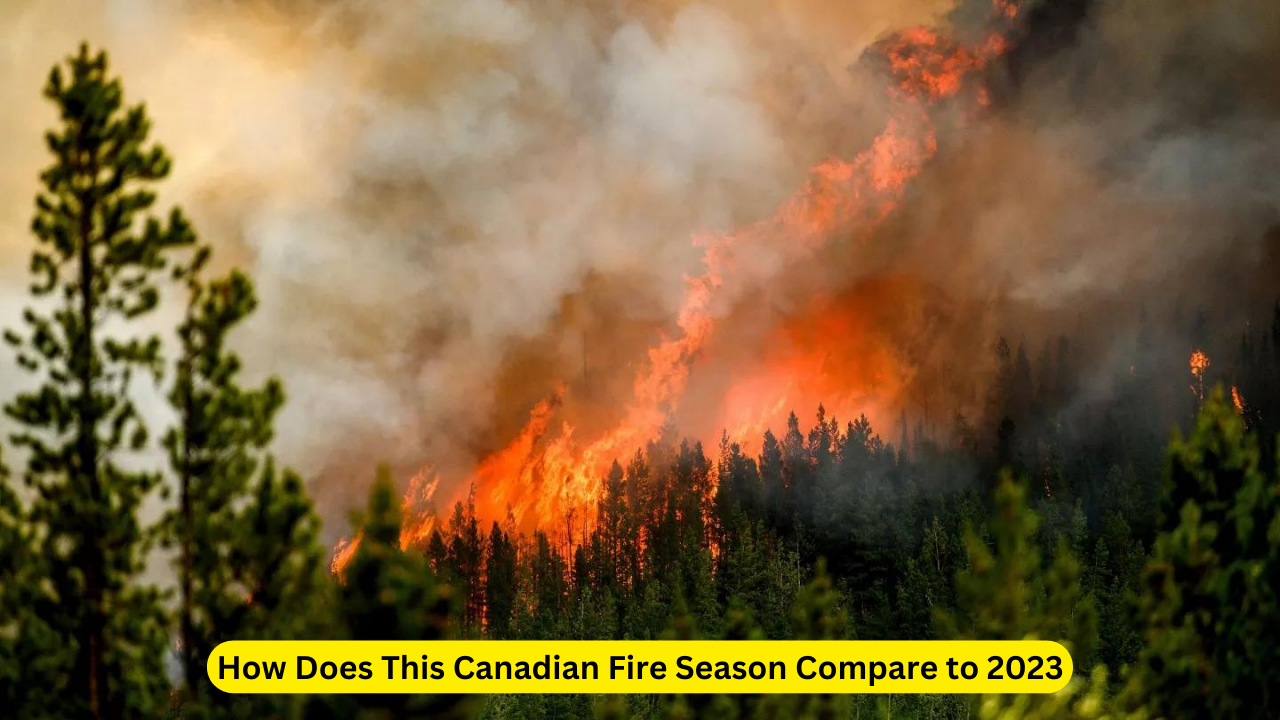The recent Canadian fire season has sparked significant concern, drawing comparisons to the events of 2023. This Canadian fire season has seen a notable increase in both the frequency and intensity of wildfires, raising questions about the factors contributing to these changes and how they compare to previous years. In this article, we explore the key differences between this Canadian fire season and the 2023 season, examining weather patterns, fire management strategies, and the broader implications for the environment and public safety.
The Scope of the 2024 Canadian Fire Season
This Canadian fire season has been marked by unprecedented challenges. Reports indicate that the number of fires and the total area burned have exceeded those recorded in 2023. The 2024 season has been characterized by longer fire durations and more extensive damage to both natural and urban areas. Factors contributing to this increase include:
- Climate Change: Changes in climate patterns have led to drier conditions and higher temperatures, which have increased the likelihood and severity of wildfires. This has been a significant driver of the heightened activity observed this year.
- Forest Management Practices: While fire management strategies have evolved, the scale of the fires has often overwhelmed existing resources. Efforts to manage forest fuel loads and implement controlled burns have been challenged by the rapid escalation of fire events.
- Human Activities: Increased human presence and activity in forested areas have also played a role. Activities such as campfires, industrial operations, and land development can inadvertently spark fires, contributing to the overall increase in fire incidents.
Comparative Analysis: 2024 vs. 2023
Weather Conditions and Fire Risk
This Canadian fire season has seen a continuation of the hot, dry conditions that characterized the 2023 season, but with even greater intensity. The increased frequency of heatwaves and reduced precipitation have created an environment conducive to wildfires. In comparison, 2023 was a record-setting year, but 2024 has surpassed those records in several regions.
Response and Management Strategies
In terms of fire response, the 2024 Canadian fire season has highlighted the need for enhanced fire management strategies. While 2023 saw significant deployment of firefighting resources, including aerial support and international assistance, 2024 has required even greater mobilization. The scale of the fires has stretched resources thin, underscoring the importance of proactive measures, such as community education and infrastructure improvements, to mitigate future risks.
Impact on Communities and Ecosystems
The impact of this Canadian fire season on communities and ecosystems has been profound. In addition to the immediate threats to life and property, the fires have caused widespread air quality issues, disrupting daily life and posing health risks. The ecological consequences are also significant, with extensive damage to wildlife habitats and increased carbon emissions contributing to climate change.
Looking Forward: Preparing for Future Fire Seasons
The comparison between this Canadian fire season and the 2023 season underscores the urgency of addressing the underlying factors contributing to wildfire risks. Key areas of focus include:
- Climate Adaptation: Developing strategies to adapt to changing climate conditions is crucial. This includes investing in research and technology to better predict and manage fire risks.
- Community Engagement: Educating the public about fire safety and prevention can reduce human-caused fires. Communities must also be involved in planning and preparedness efforts to enhance resilience.
- Policy and Investment: Governments and organizations need to prioritize funding for fire prevention and response initiatives. This includes improving infrastructure, increasing resources for firefighting, and supporting reforestation and land management programs.
Conclusion: The Future of Fire Management in Canada
The experiences of this Canadian fire season and the 2023 season offer valuable lessons for the future. As climate change continues to influence weather patterns, the risk of severe wildfires is likely to increase. Effective management will require a comprehensive approach that includes science-based strategies, community involvement, and robust policy support. By learning from past experiences and adapting to new challenges, Canada can better prepare for and mitigate the impacts of future fire seasons.
